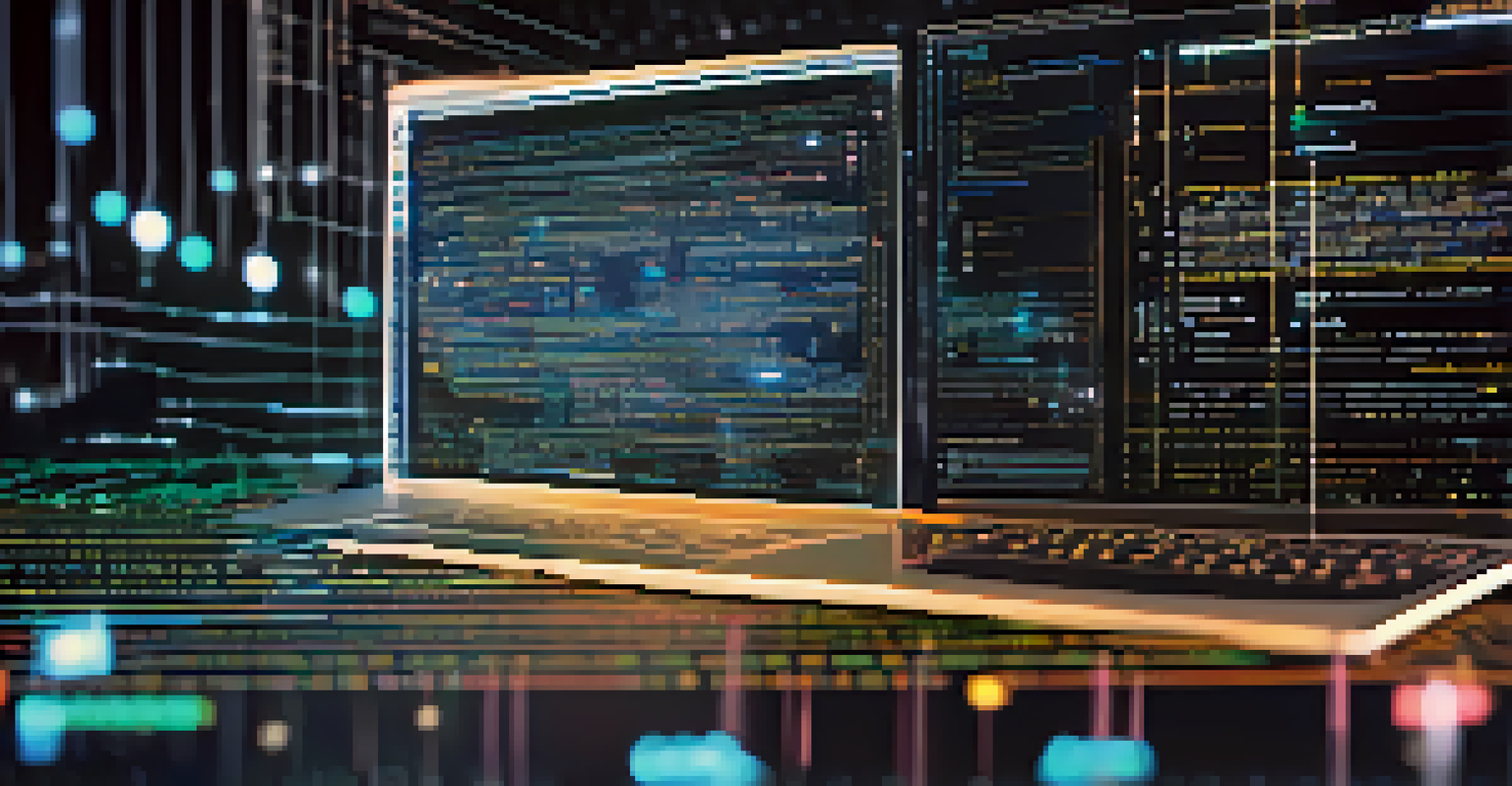The Future of Digital Rights: NFTs and Decentralized Ownership

Understanding Digital Rights and Their Importance Today
Digital rights refer to the legal entitlements that individuals have over their digital content and creations. As we navigate an increasingly online world, understanding these rights is crucial for creators and consumers alike. Without proper management of digital rights, artists, musicians, and writers can struggle to protect their work from unauthorized use.
In the digital age, protecting your creative work is not just an option; it's a necessity.
In today’s digital landscape, the importance of digital rights cannot be overstated. Imagine spending countless hours crafting a piece of art only to see it misused or appropriated without your permission. This is where the conversation about ownership and rights becomes essential, ensuring that creators are compensated fairly for their contributions.
The evolution of technology and the internet has made it both easier and more complicated to manage digital rights. With the rise of digital platforms, understanding these rights is not just about legalities; it’s also about establishing trust between creators and consumers.
What Are NFTs and How Do They Work?
NFTs, or non-fungible tokens, are unique digital assets verified using blockchain technology. Unlike cryptocurrencies such as Bitcoin, which are interchangeable, NFTs represent ownership of a specific item or piece of content, such as digital art, music, or even virtual real estate. This uniqueness is what makes NFTs so appealing in the realm of digital rights.

When an artist creates an NFT, they essentially register their work on the blockchain, creating a digital certificate of authenticity. This certificate provides proof of ownership and can be bought, sold, or traded in digital marketplaces. It’s akin to owning a signed piece of artwork; the NFT verifies who owns the original piece, even if copies exist.
Digital Rights are Crucial Today
Understanding digital rights is essential for creators and consumers to protect and fairly compensate for creative work in an online environment.
The ability to buy and sell NFTs has opened new revenue streams for creators, allowing them to monetize their work directly. However, it’s essential to remember that owning an NFT does not always equate to owning the copyright of the work itself, leading to important conversations about rights and usage.
Decentralized Ownership: A New Paradigm for Creators
Decentralized ownership shifts the traditional power dynamics of content creation and distribution. In a decentralized system, creators can directly connect with their audience without intermediaries like publishers or record labels. This means artists can gain more control over their work and earn higher profits from sales, leading to a fairer ecosystem.
Ownership is not just about possession; it’s about the rights and responsibilities that come with it.
Imagine a musician releasing an album as an NFT; they can sell it directly to fans, bypassing record labels that often take a significant cut of the revenue. This direct relationship fosters a sense of community and support, as fans feel more connected to the artists they admire. It’s a win-win situation for both parties.
However, while decentralized ownership offers exciting opportunities, it also comes with challenges. Creators must navigate the complexities of the blockchain and NFTs to effectively leverage these tools for their benefit, requiring a certain level of tech literacy that not everyone possesses.
The Role of Smart Contracts in Digital Rights Management
Smart contracts are self-executing contracts with the terms of the agreement directly written into code on the blockchain. They play a critical role in digital rights management by automating transactions and ensuring that creators are compensated fairly each time their work is sold or resold. This technology helps eliminate the need for intermediaries, allowing for a more transparent process.
For instance, when an artist sells an NFT, a smart contract can be programmed to automatically send a percentage of future sales back to the artist. This ability to earn ongoing revenue from secondary sales is revolutionary and encourages creators to participate in the NFT marketplace.
NFTs Revolutionize Ownership
NFTs provide a unique way for creators to verify ownership and monetize their digital content directly, bypassing traditional intermediaries.
However, it's essential for creators to understand how to effectively design and implement these smart contracts. This knowledge can empower them to protect their rights and maximize their earnings, providing a solid foundation for their digital careers.
Challenges Facing NFTs and Digital Rights Today
Despite the promise of NFTs, several challenges remain in the digital rights landscape. One significant issue is the environmental impact of blockchain technology, particularly with energy-intensive networks like Ethereum. As awareness of climate change grows, creators and consumers alike are becoming more conscious of the sustainability of their digital practices.
Additionally, the lack of regulation in the NFT space raises concerns about copyright infringement and ownership disputes. With anyone able to mint an NFT of someone else’s work, it can be challenging to determine who truly owns the rights to a piece of content. This ambiguity can deter potential buyers who might fear purchasing stolen art.
Navigating these challenges requires ongoing dialogue within the community and collaboration with regulators to create a more secure environment for digital rights. As the technology evolves, so must our understanding and management of these rights to protect creators and their work.
The Future of Digital Rights: Trends to Watch
As we look ahead, several trends are likely to shape the future of digital rights and NFTs. One significant trend is the increasing adoption of eco-friendly blockchain solutions, which aim to reduce the environmental impact associated with NFT transactions. This shift could attract more creators and consumers who are environmentally conscious.
Moreover, we can expect to see more legal frameworks emerging around NFTs and digital rights. As governments and organizations begin to recognize the importance of these issues, clearer guidelines will help protect creators and their work, fostering a safer marketplace for all.
Challenges in Digital Rights Persist
Despite the benefits of NFTs, issues like environmental concerns and regulatory gaps create challenges that require ongoing dialogue and collaboration.
Finally, as technology continues to evolve, so too will the tools available for creators to manage their digital rights. From improved smart contracts to user-friendly platforms, the future holds exciting possibilities for artists looking to embrace this new digital landscape.
Conclusion: Embracing the Digital Rights Revolution
The rise of NFTs and decentralized ownership marks a pivotal moment in the conversation around digital rights. By empowering creators and offering new avenues for revenue, these technologies have the potential to revolutionize how we think about ownership in the digital age. However, as with any new frontier, it’s essential to navigate this landscape thoughtfully and responsibly.
For creators, embracing this change means not only understanding the technology but also advocating for their rights and exploring the opportunities it presents. By doing so, they can ensure that their work is valued and protected in an increasingly digital world.

As consumers, we also have a role to play in this revolution. Supporting artists and understanding the implications of our purchases can help foster a healthier digital ecosystem where creativity and innovation thrive.